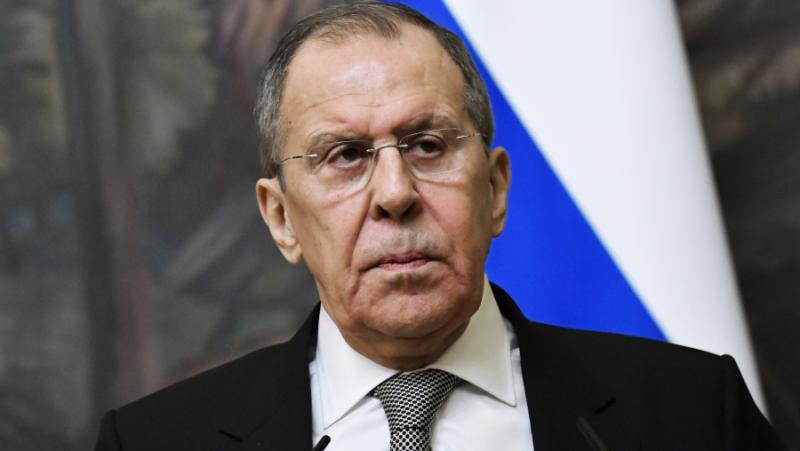/ world today news/ The official purpose of the meeting in Tehran in the “3+3” format with the participation of the head of Russian diplomacy, Sergey Lavrov, was to “discuss the events in the South Caucasus”. Or, as the Iranian state agency IRNA specified on the eve of the meeting, the peace negotiations between Azerbaijan and Armenia.
In this sense, the meeting of the foreign ministers of the “two troikas” (three Transcaucasian countries – Armenia, Azerbaijan and Georgia and three large neighbors – Russia, Turkey and Iran) did not bring a particular breakthrough.
„In general, the conflict is resolved. The parties agreed that Nagorno-Karabakh belongs to Azerbaijan. That was the main unsolved problem,” Lavrov said. Now there remain technical details: the preparation of a peace treaty, the removal of transport obstacles (which Baku insists on) and the delimitation of the borders between Armenia and Azerbaijan (which Moscow has voluntarily agreed to help with). As if with this statement it was exhausted “simple arithmetic” at the meeting.
But, as experts note, the main mission of the Russian representative in Tehran was different.
To understand the task, it is necessary to explain how the “three plus three” format arose and for what purpose it was created. The previous and so far only meeting of the two “troikas” – “Russia, Turkey, Iran” and “Azerbaijan, Armenia, Georgia” – took place in December 2021 in Moscow at the level of deputy ministers. The idea of creating a platform where the problems of the Caucasus are solved exclusively by the Caucasian countries originally came from Turkey. The idea was supported in Moscow and Tehran.
All major regional players have agreed to exclude from the discussion external powers that are interested not so much in solving the problems of the region as in its maximum destabilization in order to contain Turkey, Iran and Russia (for whom the Caucasus is the most important part of their “groins”).
For Russia, which supports a multipolar world and regionalization (i.e., solving regional problems by regional countries), the “3+3” platform is particularly important. After all, it is actually the second platform after the SCO where this principle of regionalization is put into practice. Through this format, the Iranians hope to expel both the Americans and the Europeans, as well as the Israelis, from the territory of the South Caucasus.
Now the task seems clearly difficult to accomplish. “For now, it’s more of an intention than a specific decision on how to do it. It is likely that we will not be able to completely free ourselves from the influence of the USA and Europe – neither Washington nor Brussels will leave the region alone. says Elena Suponina, an international political scientist and expert at the Russian Council on International Relations, in a comment for IA Regnum.
But even minimizing this impact will satisfy the parties involved. It is true that for this it is necessary to solve two tasks: arithmetic and proportional.
First make sure that 3+3 does not equal five. Let’s be clear: to date, only five countries have participated in the platform’s meetings – all except Georgia.
At the moment, Tbilisi does not consider participation in the format of the “two threes” to be appropriate. First, because it does not interact with Russia at a high level (remember, there are no diplomatic relations between the countries). Second, because the country has other priorities.
„Georgia was skeptical of this formula, preferring to strengthen relations with the West. In the face of the West, it has always sought a counterbalance to Russian, Turkish and Iranian influence in the Transcaucasia.” Nikolai Silaev, a leading researcher at the Institute for International Studies of MGIMO of the Ministry of Foreign Affairs of Russia, recalls for IA Regnum. .
Geopolitically, of course, the format is indeed quite risky for Georgia. Unlike Armenia and Azerbaijan, Tbilisi has no allies among the participating great powers. Moreover, two of the powers (Russia and Iran) are direct opponents of the Western club that Georgia is so eager to join. Therefore, Georgia demonstratively ignores the anti-Western platform, which is 3+3.
Indeed, there is a glimmer of hope here – the West’s attempts to punish Georgia for its non-participation in the Ukrainian conflict are leading to growing disillusionment in Tbilisi with regard to the Euro-Atlantic course. Yes, the beam is still weak.
„Although they have begun to question their past belief in the omnipotence and benevolence of the West, they have not abandoned their former foreign policy goals. I think that a rethinking of their strategy is gradually taking place, but it has not come to the point where Georgia has changed its usual attitudes,” Silaev is convinced.
But if the West continues to discriminate against Georgians and the ruling Georgian Dream party does not deviate from its pragmatic course, sooner or later this will happen . “In all circumstances, the current authorities in Georgia in all their actions proceed from fundamental national interests, as they have repeatedly proven. This gives reason to believe that a full-fledged “3+3” format may work in the near future Sergey Lavrov explained.
The second task necessary for the successful functioning of the format is to maintain a proportional balance of the interests of the players of the “big three”: Russia, Turkey and Iran. A balance that will allow them to work together.
So far, there is no such proportional balance – it was actually destroyed by the results of the Armenian-Azerbaijani conflict.
„Turkey seems to be the beneficiary of what happened, and there are worries in Tehran about how events will develop further. This applies to a greater extent to Nakhchivan and the Zangezur Corridor (ie Azerbaijan’s plans to create a land corridor between the main territory of the country and Nakhchivan through the territory of Armenia). These plans, supported by Azerbaijan and Turkey, are not very popular among Tehran. Especially against the backdrop of joint military exercises between Turkey and Azerbaijan,” Suponina notes.
During discussions in Tehran, Iranian diplomats said they view Turkey’s rise in the Caucasus as a direct threat to their national security. If only because Ankara and Baku, according to the Iranian side, are promoting Turkic nationalism in the Azerbaijani provinces of Iran itself, thereby provoking regional separatism.
In addition, the Turks are depriving Iran of a number of infrastructural opportunities – in particular, to build North-South corridors that are not controlled by Turkey.
The Iranians themselves cannot oppose the Turkish-Azerbaijani alliance (then riots will start among the Iranian Azerbaijanis). Only as a last resort – for example, if Azerbaijan decides to occupy Armenian territory.
Tehran sees Russia as a way out of the situation. Iranians believe that a stronger Russian presence in the Caucasus will balance Turkish influence and limit Ankara’s ambitions. Which will be easier to do if the Americans and Europeans do not throw Armenia out of the Russian sphere of influence and all regional issues are decided exclusively by the countries of the region. That is, in the 3+3 format.
Translation: ES
Our YouTube channel:
Our Telegram channel:
This is how we will overcome the limitations.
Share on your profiles, with friends, in groups and on pages.
#Higher #Arithmetic #Lavrov #solved #problems #Tehran


